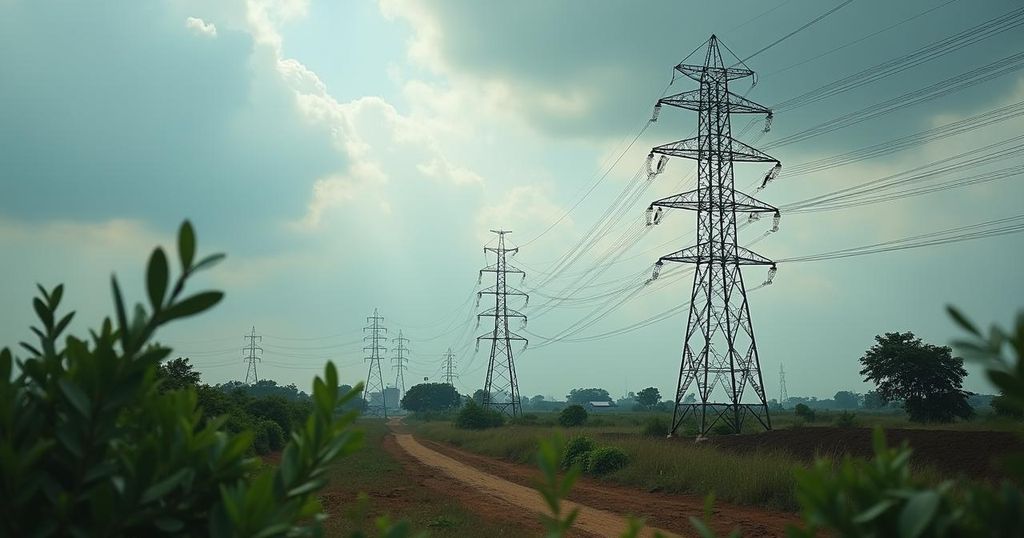The Nigerian Electricity Regulatory Commission has reported that international electricity customers in Benin Republic and Togo owe Nigeria a total of $5.79 million for the second quarter of 2024. Out of an total invoice of $15.60 million, only $9.81 million was remitted. The report notes improvements in remittance from international customers compared to previous quarters, while domestic customers also showed progress in settling outstanding invoices. The government has reduced its electricity subsidy obligations significantly due to tariff adjustments.
Recent findings from the Nigerian Electricity Regulatory Commission (NERC) indicate that international electricity customers from the Benin Republic and Togo owe Nigeria a cumulative debt of $5.79 million for electricity consumed in the second quarter of 2024. This financial report, analyzed by our correspondent, highlights that while a total invoice of $15.60 million was issued for that period, these customers were only able to remit $9.81 million. Specifically, the power companies in Benin Republic and Togo, including Para-SBEE in Benin Republic, which owed $1.23 million, and the Odukpani-CEET in Togo, which owed $3.47 million, accounted for the majority of this debt. Notably, Para-SBEE settled 71.21% of its bill, while Odukpani-CEET failed to make any payments whatsoever during the quarter. This report also contrasted the payment behaviors of these international customers with previous quarters, noting a significant lack of payment earlier in the year when none had remitted against a larger cumulative invoice of $14.19 million. In terms of overall payments for outstanding invoices, the report emphasized that a total of $16.65 million has been collected from international bilateral customers across previous quarters, indicating a gradual improvement in remittance performance whereby 62.88% of the total invoice was settled by international customers in the second quarter alone. The report further detailed that domestic bilateral customers also showed relative improvement, remitting N1.30 billion against a total invoiced amount of N1.99 billion, corresponding to a remittance efficiency of 65.07%. However, the payments still highlight substantial outstanding debts. It was also revealed that the Nigerian government has effectively reduced its electricity subsidy obligations from N633.30 billion in the first quarter of 2024 to N380.06 billion in the second quarter. This decrease was attributed to government policies aimed at adjusting tariffs for certain customer bands while maintaining frozen rates for others. In terms of collection performance, all Distribution Companies (Discos) collectively gathered N431.16 billion from billed amounts during the second quarter, achieving an overall collection efficiency of 79.31%, which is marginally higher than the 79.11% recorded in the prior quarter. High performers included Ikeja and Eko Discos, which recorded efficiencies of 94.67% and 88.03%, respectively, whereas Yola Disco reported the lowest efficiency at 55.67%.
The issue of payment default regarding exported electricity has been a continuous challenge for Nigeria, particularly with its neighboring countries, Benin Republic and Togo. The NERC regularly monitors and reports on the financial performance of electricity transactions, and the debts amassed by international customers highlight both the struggles of foreign buyers and the impact on Nigeria’s electricity industry. Understanding the financial transactions and remittances involved is crucial for assessing the electricity market’s overall health and the efficacy of governmental policies regarding electricity tariffs and subsidies. The role of tariffs and the collection efficiencies of local power distribution companies further illuminates the complexities of the sector.
In summary, the recent report from the NERC outlines a significant yet incomplete effort by international customers from Benin Republic and Togo to settle their electricity debts, reflecting both improvements and ongoing challenges in remittance. Despite a total of $5.79 million owed and varying payment performances among different companies, there are signs of gradual recovery in payment from previous quarters. Additionally, the substantial decrease in government subsidy obligations correlates with changes in tariff policies, suggesting a shifting landscape in Nigeria’s electricity regulatory environment. Maintaining effective collection strategies and ensuring consistent payments remains imperative for the valuation of Nigeria’s electricity sector.
Original Source: punchng.com






